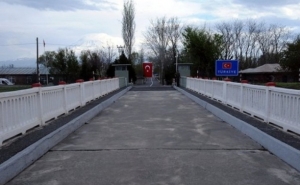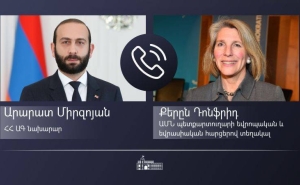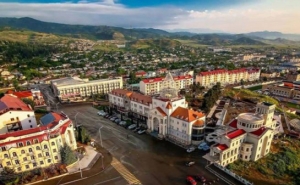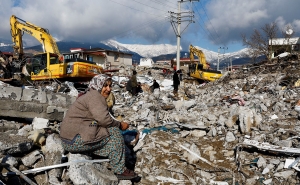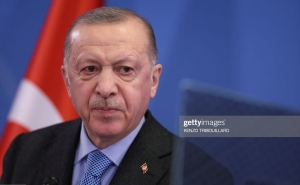Syria: Who Was Interested in the New Escalation?
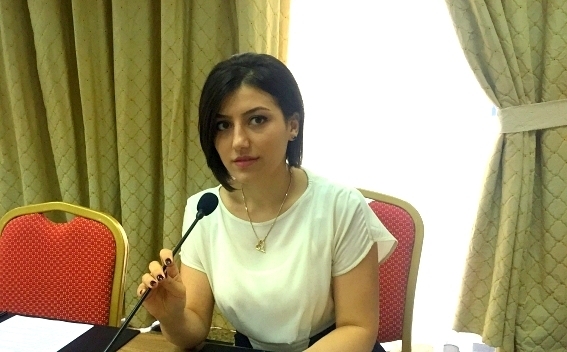
The Syrian conflict once again became the number one problem on the international agenda, throwing back all other issues. Information on the April 4 chemical attack on the Khan Sheikhoun city in the Syrian province of Idlib under the control of the militants followed by the "retaliatory measures" of the US created a new situation in the region, exacerbating the already difficult Syrian conflict. The sides accused each other of the chemical attack in the province of Idlib. In particular, Western forces, a number of armed groups and regional countries (Turkey, Israel) accused the administration of Syrian President Bashar Assad of a chemical attack. Russia and Iran, in fact, are in favor of official Damascus, calling for avoiding charges until the incident is conducted by an independent investigation. And the President of Syria says that the incident in Khan Sheikhun was completely "fabricated," and, in general, according to Assad, it is still a question if there was any chemical attack on Idlib.
A new wave of tension was considered unlikely
Significantly, a certain relative stability was observed in the region just before the chemical weapon incident. On the one hand, efforts were made to push forward the Syrian talks in Astana and Geneva, as well as to consolidate the ceasefire in the country; on the other hand, the map of military operations in Syria gave the impression that the main players had come to a definite agreement around the zones of influence and further actions will be directed to strengthen those zones. Consequently, a new wave of tension, if not excluded, was nevertheless considered unlikely.
In whose interests was the new round of tension?
The forces behind the chemical attack clearly realized that it would trigger an American or Western reaction, resulting in a new chaos in the country. If we take into account the fact that the recent Russian-American cooperation in Syria seemed more than realistic, which implies a more organized nature of the struggle against armed groups, it can be assumed that the most interested in the new chaos are the armed groups whose resources, by the way, were significantly reduced recently.
In addition, they can act in two ways. First, given the fact that in 2013-2014 the Syrian chemical potential was not completely destroyed, but only in those territories that were under the control of the Syrian government, which suggests that chemical weapons could remain in the country. In addition, in the absence of control on the Syrian border, it is natural that the transfer of such weapon to Syria was not difficult. And the second option: other forces, including regional players could have helped those armed groups to obtain chemical weapon, get relevant instructions on its application. Among these "supporters" may be Turkey, which, despite its advantageous position in current Russian-American relations (being NATO member and US ally in the region, on the one hand, and a member of the Russia-Iran-Turkey format, on the other hand), Russian-American cooperation in Syria to some extent limits Turkey’s ability to maneuver, therefore, official Ankara could also be interested in aggravating the situation.
In addition, in Syria, as in Iraq, in order to prevent the establishment of independent Kurdish states, the best option for Turkey will be chaos, since in the case of Iraq, as experience shows, even a certain stabilization of the situation can lead to the independence of Iraqi Kurdistan. And finally, the referendum on constitutional reforms held in Turkey caused criticism, and it is for this reason that Ankara is trying to deviate the attention from Turkey and its internal problems to neighboring hot spots.
How possible is the new Russian-American tension?
The rocket fire sent by the United States to the Syrian air base Sheirat on the night of April 6 to April 7, which was the first direct attack by the Americans on the Syrian authorities, seriously aggravated the situation. It seemed that the Russian-American direct clash in Syria is already inevitable. However, the fact that the damage caused by American missiles was very limited (the media mainly talk about material damage, namely 15 planes), the lack of an immediate reaction from Russia (however surprising), the visit of the US Secretary of State to Russia and his meeting with the Russian president is likely to suggest that cooperation between Russia and the United States on the Syrian line continues, and that a direct Russian-American clash in Syria, at least today, is unlikely. In Syria, and more widely in the Middle East, the further development of events will be significantly conditioned by the certainty of Donald Trump’s Middle East policy. And his policy continues to show trends of cooperating with Russia.
Other materials on this subject
- Turkey Is Ready For a New Military Operation in Northern Syria Kalyn said. He also added that in the event of a threat, ''an assessment will be made and everything necessary will be done.''
- Russia, Iran and Turkey Discussed the Turkish Operation in Syria Russian side tried to convince Ankara to solve the problem by peaceful means, without resorting to violence.
- US Forces in Syria Attacked after Air rRids on Armed Groups Iran-backed armed groups had earlier promised to retaliate after the US launched several air raids on the groups in Iraq and Syria on Sunday.
- Syria: Assad's Baath Party Wins Majority in Parliamentary Polls More than 7,000 polling stations were set up across government-controlled parts of the country. Voting also took place in former opposition-held areas for the time since government forces retook much of...
- Russia, China Veto U.N. Approval of Aid Deliveries to Syria from Turkey The Security Council will now vote on a rival Russian text that would only approve one Turkish crossing for aid access for six months. During the coronavirus pandemic the council has been operating virtually,...
-
 17:08
17:08The regular session of the Anti-corruption Policy Council takes place in Jermuk
-
 15:05
15:05The Prime Minister sends congratulatory messages to the supreme leader of Iran and the President of Iran
-
 11:11
11:11Armenia sends earthquake aid to Turkey
-
 10:43
10:43Commemoration of the Pontiff St. Sahak Partev
-
 09:16
09:16Some roads are closed and difficult to pass in Armenia
-
 19:55
19:55Phone conversation of the Foreign Minister of Armenia with the U.S. Assistant Secretary of State for European and Eurasian Affairs
-
 18:30
18:30Prime Minister Pashinyan and President Khachaturyan meet
-
 18:20
18:20Ararat Mirzoyan with Co-Chairman of the OSCE Minsk Group of France Brice Roquefeuil
-
 17:01
17:01Humans could land on Mars within 10 years, Musk predicts
-
 16:45
16:45France, US urge 'immediate' end to Nagorno Karabakh blockade
-
 16:01
16:01Blockaded Nagorno Karabakh launches fundraiser to support quake-hit Syria
-
 15:59
15:59Earthquake death toll in Turkey rises to 18,342
-
 15:43
15:43Ararat Mirzoyan Held a Telephone Conversation with Sergey Lavrov
-
 15:06
15:06French president rules out fighter jet supplies to Ukraine in near future
-
 14:47
14:475 Day Weather Forecast in Armenia
-
 14:44
14:44President Vahagn Khachaturyan wrote a note in the book of condolences opened in the Embassy of Syria in Armenia
-
 14:20
14:20Azerbaijan’s provocations impede establishment of peace and stability – Armenian FM tells Russian Co-Chair of OSCE MG
-
 12:57
12:57France representation to OSCE: Paris calls on Azerbaijan to restore freedom of movement through Lachin corridor
-
 11:40
11:40Command of Kosovo forces highly appreciated preparation of Armenian peacekeepers
-
 10:16
10:16The United States withdrew from sanctions against Syria for six months the provision of assistance after the earthquake
day
week
month
Humidity: %
Wind: km/h


